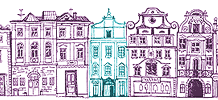Genes News
Welcome to the new Genes Reunited blog!
- We regularly add blogs covering a variety of topics. You can add your own comments at the bottom.
- The Genes Reunited Team will be writing blogs and keeping you up to date with changes happening on the site.
- In the future we hope to have guest bloggers that will be able to give you tips and advice as to how to trace your family history.
- The blogs will have various privacy settings, so that you can choose who you share your blog with.
Official Blogs
Heartfelt poems from bereaved WW1 families
Touching tributes written by families for their loved ones killed during WW1 have revealed the devastating impact the war had on family life in Britain and the importance of religion for people.
Scores of ‘In Memoriam’ poems written to accompany death notices, published in local papers across the country, have been uncovered by the family history website Genes Reunited.
The poems, sent by wives, parents, brothers, sisters and orphaned children, gave families an opportunity to publicly express their sorrow and horror when there was no grave to visit whilst also showing how proud they were of the sacrifice their loved one made.
A poem published in 1916 in the Dover Express from the “heartbroken wife and children” of Lance Corporal Arthur Robert Clarke, tells how they constantly call his name “But there is nothing left to answer, But your picture in the frame”.
Another, from the Nottingham Evening Post in May 1916, tells of a family’s grief that their son and brother died without any of his loved ones around him. The “sorrowing mother and sister” of Rifleman C Hall, from the Kings Royal Rifles, wrote: “None near him who loved him to say goodbye before he closed his eyes, but in a hero’s grave he lies beneath some foreign skies.”
For many, not knowing where their loved one was buried was the hardest thing to cope with. In the Grantham Journal in 1917, the sister of a Pte. Richard Pick said: “The unknown grave is the bitterest blow, none but an aching heart can know.”
For the parents and brother of Pte Harry Randall, Kings Royal Rifles, who was killed in action in December 1915, the thought of the celebrations that would accompany soldiers returning home was upsetting. The Grantham Journal published this poem in 1917 “But the hardest part is yet to come, When our heroes all return, And we miss, among the cheering crowds, The face of our dear one.”
A number of the poems emphasise how important religion was for people and that a strong faith in being reunited with their loved one provided strength at a very difficult time.
The Dover Express printed a poem in 1916 where a mother wrote of her beloved son, Henry William Piggott: “Sleep on dear loved one and take thy rest, God has chosen for the best, Our loss is nothing to your gain, We have parted to meet again”
Myko Clelland of Genes Reunited, said: “We have been doing research into the lives of those left behind during WW1. Too often we read of the 16 million who tragically lost their lives during The Great War without really understanding the grief that families went through. These ‘In Memoriam’ poems bring home the pain and sorrow they experienced.”

